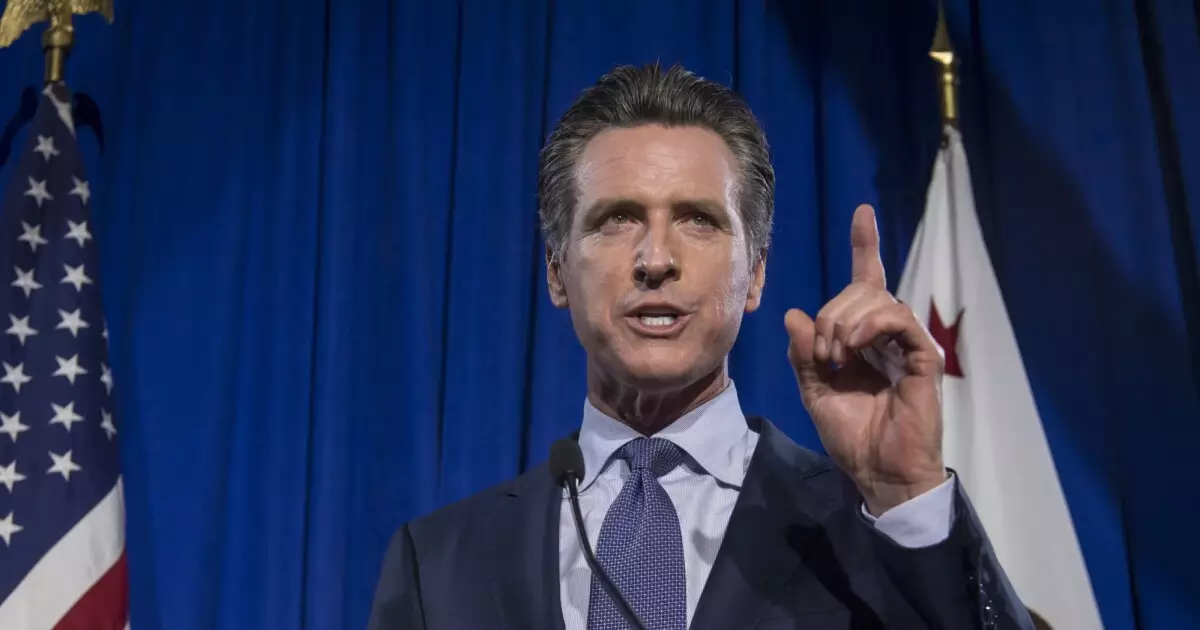Proposition 98, a landmark piece of legislation that enshrines funding for education in California’s constitution, is now at the center of a contentious legal dispute. Mandating a consistent allocation of state budget funds to public education, Proposition 98 aims to ensure that schools receive adequate financial support to foster student achievement. However, the recent actions of the California legislature and Governor Gavin Newsom have led to accusations of undermining the very foundation of this vital funding mechanism. The California School Boards Association (CSBA) has taken a stand, filing a lawsuit against the state to challenge what they allege is a legislative overreach that jeopardizes school funding.
The crux of CSBA’s lawsuit revolves around the 2024 Education Omnibus Budget Trailer Bill, a legislative maneuver they claim infringes upon the constitutional guarantees established by Proposition 98. By allegedly circumventing these provisions, the state risks setting a dangerous precedent that could enable future lawmakers to manipulate education funding at will. The Department of Finance, however, has refuted these claims, maintaining that their budgetary decisions remain within constitutional bounds.
Albert Gonzalez, the president of CSBA, passionately voiced the stakes involved, stating, “The California Constitution cannot be discarded for convenience…” These sentiments underscore the broader implications of the lawsuit: it isn’t merely about funding; it’s about preserving public trust and accountability to the electorate. The voters mandate financial support for schools, embodying a social contract that the state must honor.
Timeline of Events Leading to the Dispute
The tension escalated throughout the 2024 budget development cycle, as the Department of Finance introduced provisions that CSBA argues undermine the letter and spirit of Proposition 98. Despite growing opposition and vocal advocacy from the association, the legislature approved a budget that CSBA views as fundamentally flawed. By borrowing from the state’s general fund to fill budget gaps and delaying tax collections, the state has seemingly chosen an expedient path that could threaten the financial stability of California’s educational institutions.
Compounding these concerns, the complexities of the trailer bill further obscure the promise of consistent funding. According to CSBA, the trailer bill creates a mechanism whereby future calculations of funding could be systematically lowered, depriving schools of the resources necessary for optimal student performance.
In response to the lawsuit, the Department of Finance issued a letter that, while rejecting CSBA’s claims, signifies the contentious nature of the dispute. They assert that their interpretation of Proposition 98 and its application within the budgetary framework is sound and constitutional. H.D. Palmer, a spokesperson for the Department, expressed confidence that the courts would uphold their stance. This ongoing back-and-forth highlights the tension between state powers and the legal frameworks designed to protect educational funding.
However, regardless of the outcome, this legal battle raises significant questions about the future of educational funding in California. If the courts rule in favor of CSBA, it could restore funding safeguards that have historically underpinned school operations. Conversely, a ruling favoring the state might set a precedent that allows further manipulation of Proposition 98, endangering the financial health of schools across California.
Wider Implications for Educational Policy
The broader ramifications of this dispute extend far beyond the immediate context of budget numbers. Education funding shapes the quality of learning environments, directly impacting students’ academic success and well-being. As CSBA advocates for adherence to Proposition 98, they frame the issue not just as a legal fight, but as a moral imperative to protect California’s youth.
Moreover, this situation exemplifies the broader struggles faced by educational institutions in balancing state fiscal policies with the imperative of providing quality education. As state budgets tighten, schools often find themselves in precarious positions—attempting to do more with less. This lawsuit could become a landmark case that ultimately defines the boundaries of educational funding in California for years to come.
The legal challenges posed by CSBA against the state encapsulate deeper national conversations about education funding, governance, and accountability. As the case unfolds, it will not only shape the immediate budgetary landscape of California schools but also signal to educators and policymakers the importance of maintaining constitutional commitments to public education. The stakes are high, and the outcome will influence not just budgets but the very fabric of educational opportunity for generations of Californians.

